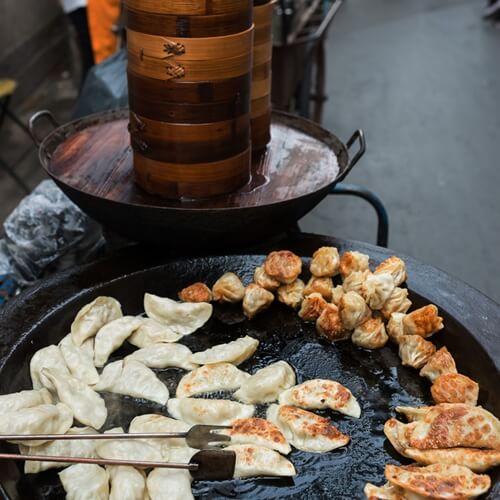Berkshire food movement

In western Massachusetts sits a bastion of New England. Known to locals and classical music enthusiasts as the location of Tanglewood, a concert venue that hosts the Boston Symphony Orchestra, the Berkshires is a cultural destination. The local Berkshire tourist industry now hosts upwards of 2.5 million guests a year during the summer music season, a number that a local non-profit wants to increase with a new tourism focus on Berkshire food. Students of online culinary courses may recognize some of the nonprofit Berkshire Farm and Table’s techniques for creating a Berkshire food brand: local food, farm-to-table restaurants, small-scale and specialty farms.
The first draw
Musicians of the Boston Symphony Orchestra may have played a heavy hand in increasing the importance of local food for Berkshire’s tourism industry. The musicians, frequenters of the coffee shop No. Six Depot, suggested to Tanglewood directors that the local coffee should be a food option on the venue’s grounds. The idea took hold and soon the venue began incorporating local farm supply in its daily menus.
“It lets people know that the Berkshires is not just a cultural destination, but also a culinary destination. It helps everybody,” Tanglewood Executive Chef Joshua Ingraham said of the new local food movement to the Berkshire Eagle.
Outside of Tanglewood
The cultural dominance of the Berkshires is easily recognized in the collection of prestigious museums that take residence in the area. Berkshire Farm and Table is hoping to prove the area’s culinary relevance as well. There are currently three local food trails that the organization has developed, with the intent to develop more. The Berkshire food trails currently consist of a cheese trail, a charcuterie trail and a beer and cider trail.
“We are at a point in time where the Berkshires need to take a look at itself, see what we want to be known for,” founder of the Berkshire Farm and Table, Angela Cardinali, told the Boston Globe.
Berkshire Farm and Table, as well as the Berkshire Visitors Bureau, have run into a common problem: defining Berkshire’s food brand. The area has numerous local farms and food producers, now numbered at over 500. With such a large number comes large variety, and choosing specific characteristics to define the area’s brand will prove difficult. At the moment, local may suffice. Only in time will we know what makes a food a Berkshire food.


